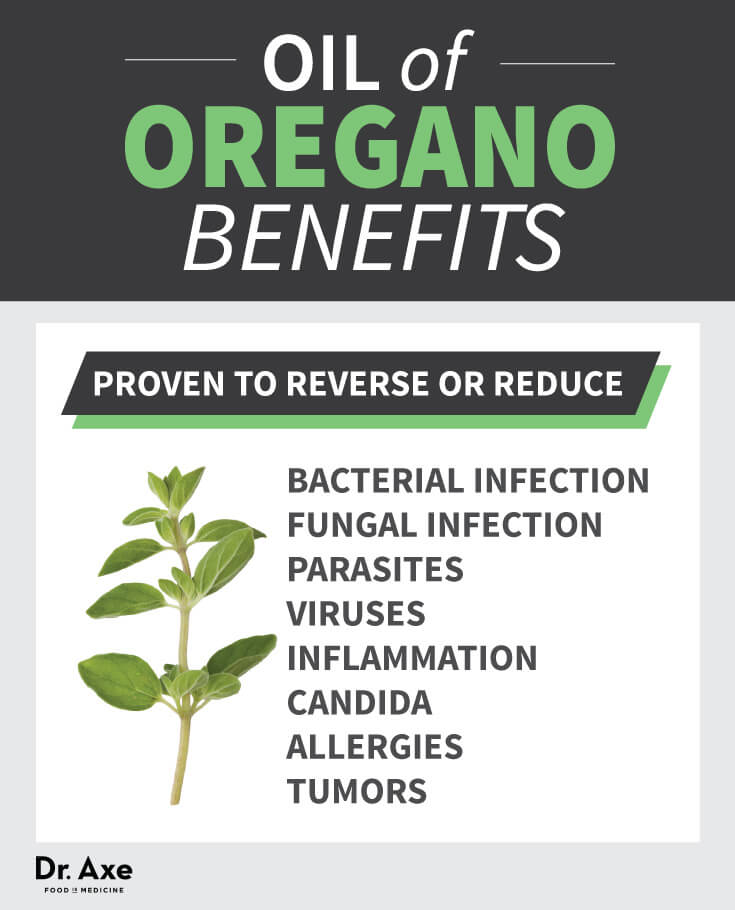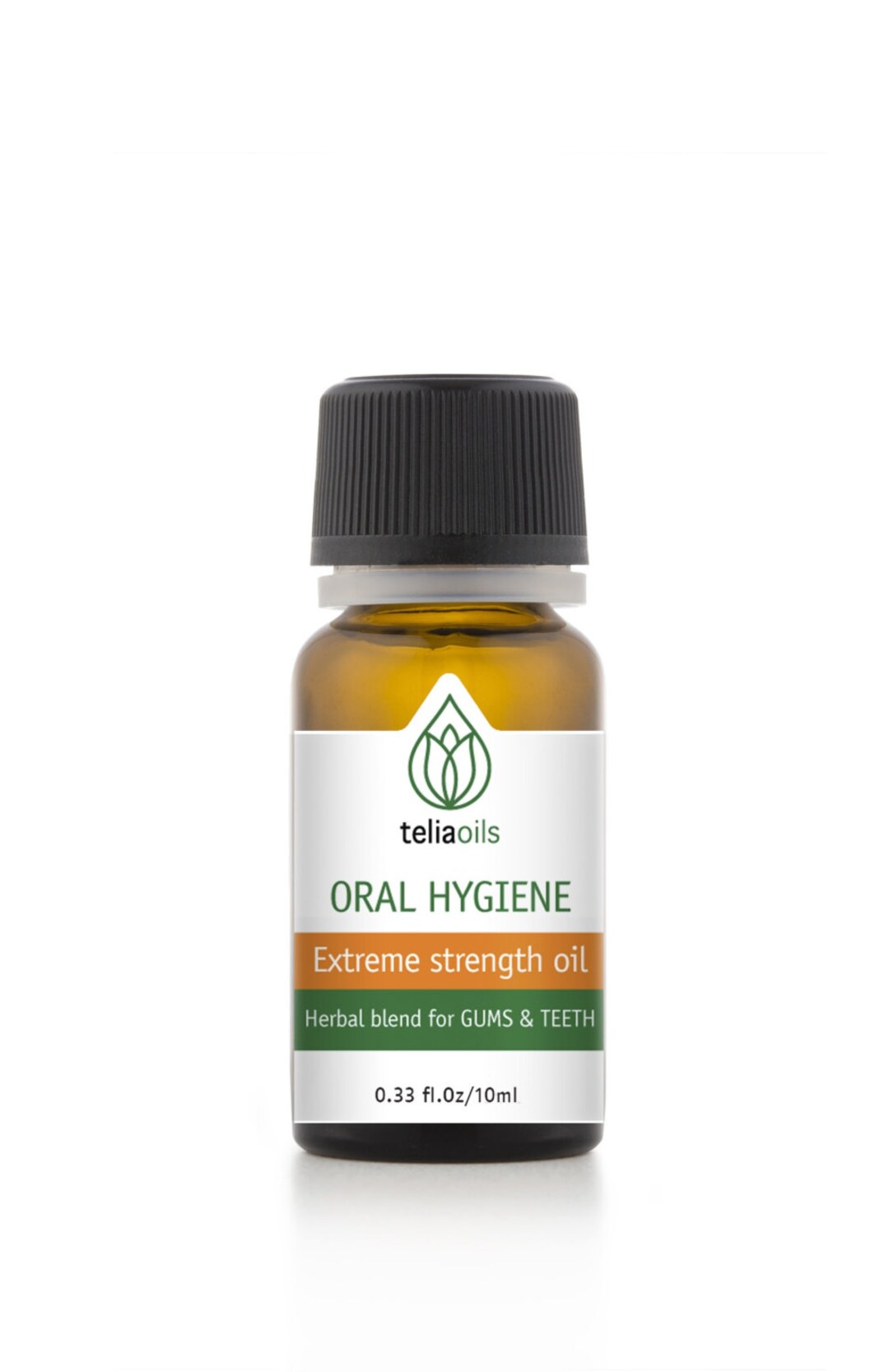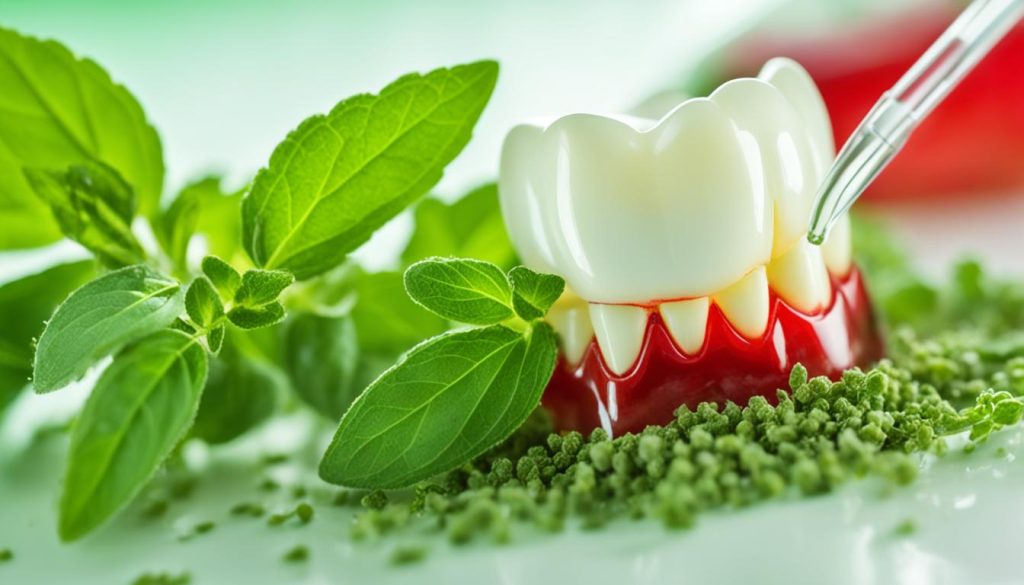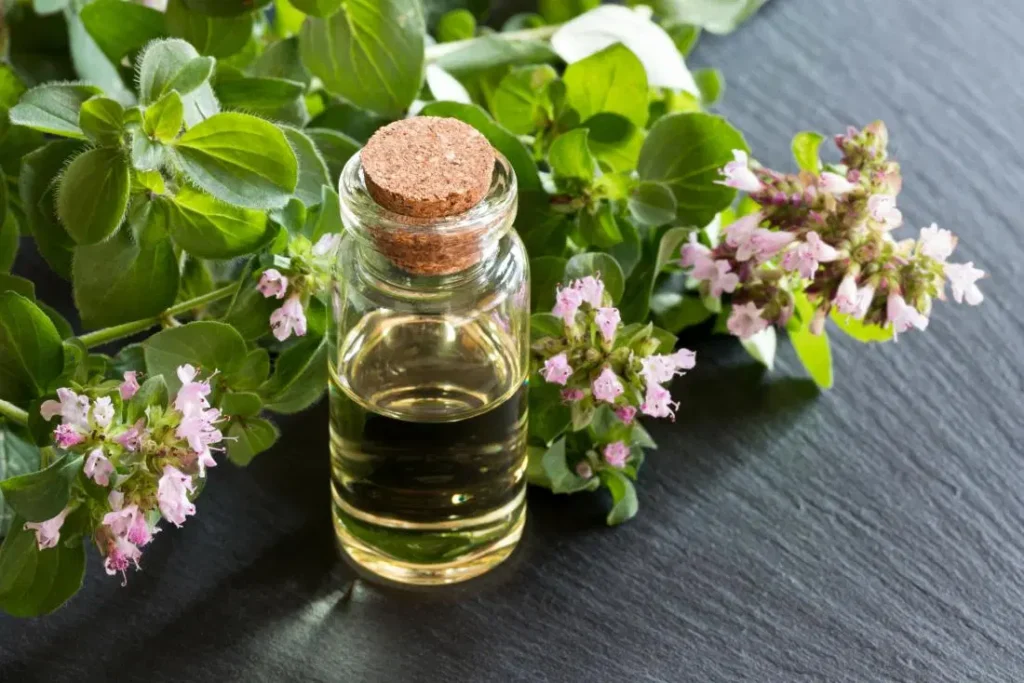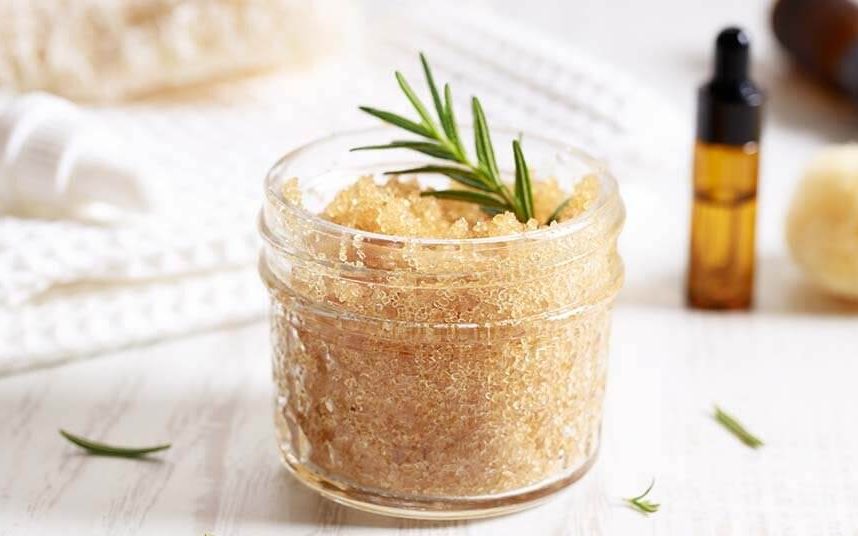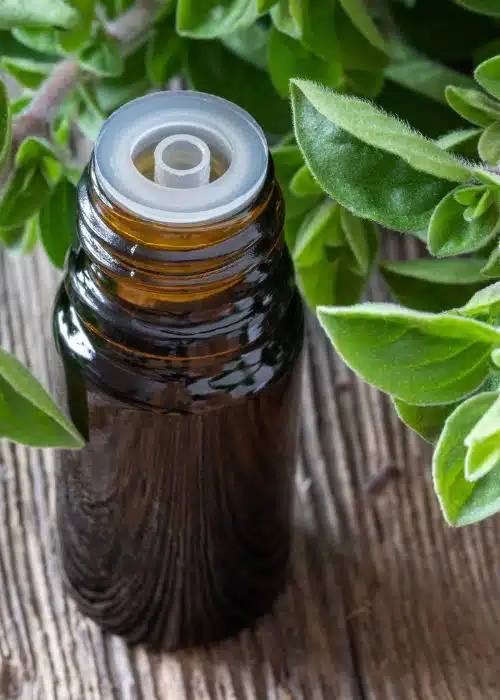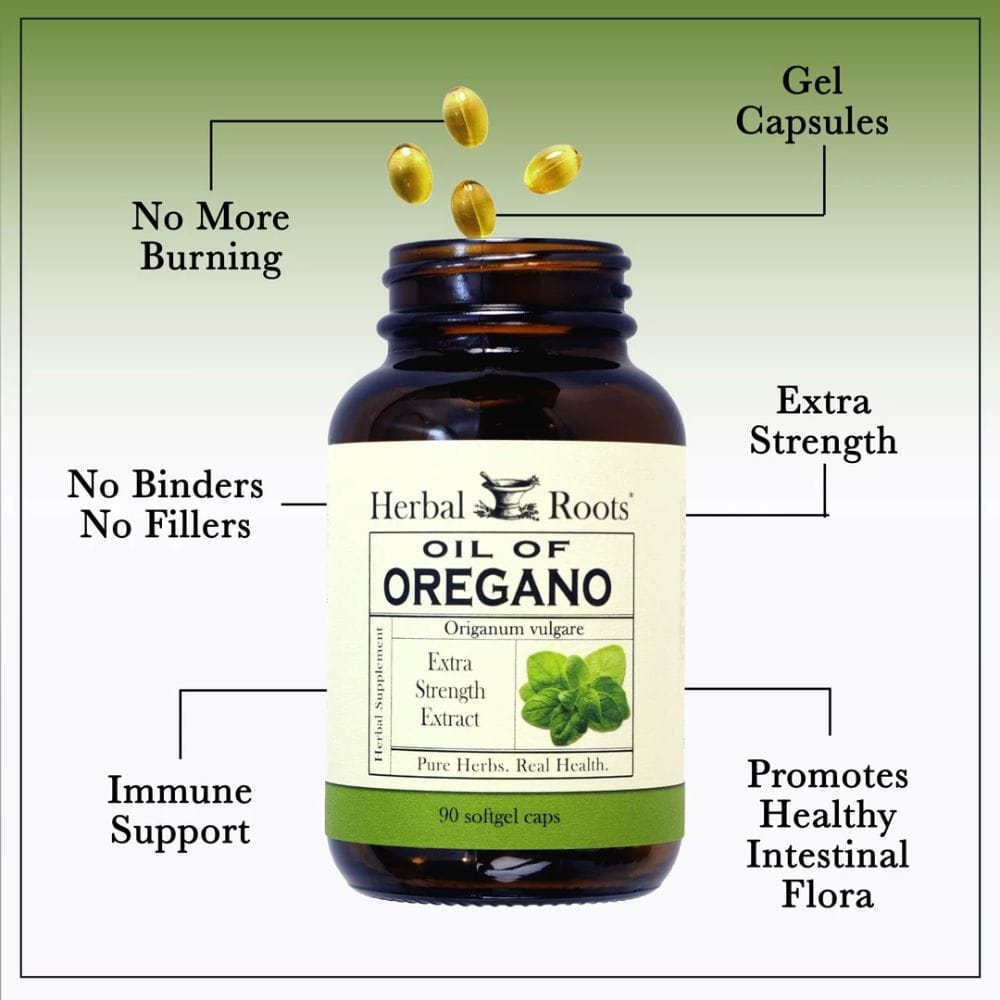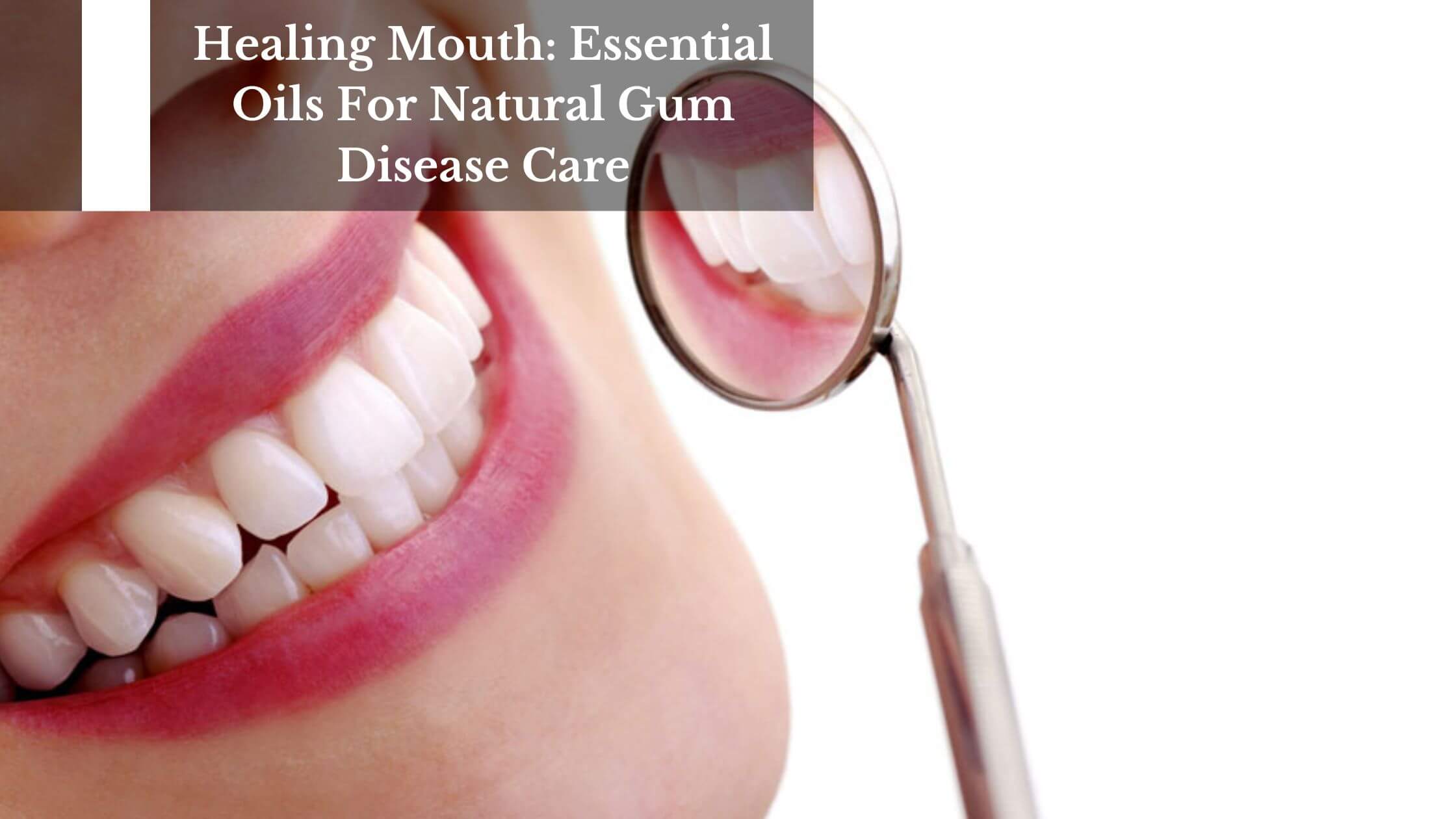Oil Of Oregano For Gum Disease

Imagine the earthy, pungent aroma of oregano wafting through your kitchen, not just as a culinary delight, but as a potential guardian of your oral health. For centuries, this herb has been celebrated for its medicinal properties, and now, whispers are growing louder about its potential role in combating gum disease, a silent threat to millions. Could this humble herb hold the key to a healthier smile?
The buzz surrounding oil of oregano as a natural remedy for gum disease is gaining traction, fueled by anecdotal evidence and preliminary research. While not a replacement for professional dental care, its potent antimicrobial and anti-inflammatory properties offer a promising complementary approach to managing and potentially preventing periodontal issues. This article delves into the science behind this claim, exploring its potential benefits and limitations, and offering guidance on its safe and effective use.
The Silent Epidemic: Understanding Gum Disease
Gum disease, also known as periodontal disease, is a common infection that damages the soft tissues and bone that support your teeth. It starts with gingivitis, characterized by red, swollen, and bleeding gums. If left untreated, it can progress to periodontitis, a more severe form that can lead to tooth loss and even systemic health problems.
According to the Centers for Disease Control and Prevention (CDC), nearly half of adults aged 30 and older show signs of gum disease. This prevalence underscores the importance of effective prevention and treatment strategies.
Traditional treatments for gum disease typically involve scaling and root planing (deep cleaning), antibiotics, and, in severe cases, surgery. However, many are now seeking natural alternatives or adjuncts to conventional therapies.
Oil of Oregano: Nature's Defender?
Oil of oregano is extracted from the leaves and flowers of the oregano plant, specifically Origanum vulgare. It is rich in compounds like carvacrol and thymol, which possess potent antimicrobial, antifungal, and anti-inflammatory properties.
These properties are what make oil of oregano a potential contender in the fight against gum disease. The antimicrobial action can help combat the bacteria that contribute to plaque and tartar buildup, while the anti-inflammatory action can reduce gum swelling and bleeding.
Scientific Evidence and Research
Several studies have investigated the effects of oil of oregano on oral health. One study, published in the Journal of Periodontology, found that oil of oregano exhibited significant antibacterial activity against several oral pathogens associated with gum disease.
Another study, featured in the journal Phytotherapy Research, demonstrated that carvacrol, the main component of oil of oregano, could inhibit the formation of biofilms, a protective layer formed by bacteria that makes them more resistant to antibiotics.
However, it's crucial to note that much of the research is preliminary and often conducted in vitro (in test tubes) or on small sample sizes. More robust, large-scale clinical trials are needed to definitively confirm the efficacy and safety of oil of oregano for treating gum disease.
How to Use Oil of Oregano for Gum Health (Safely)
If you're considering using oil of oregano for gum health, it's essential to do so safely and under the guidance of a healthcare professional or dentist. Never apply undiluted oil of oregano directly to your gums, as it can cause burning and irritation.
Here are some common methods of use:
- Diluted Mouthwash: Add 1-2 drops of oil of oregano to a glass of water and use as a mouthwash after brushing. Swish for about 30 seconds and then spit it out.
- Topical Application (Diluted): Dilute oil of oregano with a carrier oil such as coconut oil or olive oil (a 1:1 ratio is often recommended). Apply a small amount to the affected gums using a cotton swab.
- Toothpaste Additive: Add a single drop of oil of oregano to your toothpaste before brushing.
It's crucial to choose a high-quality, therapeutic-grade oil of oregano from a reputable source. Look for products that specify the carvacrol content, as this is the key active ingredient. It is equally important to check that the product has been independently tested for purity and potency.
Precautions and Potential Side Effects
While generally considered safe when used properly, oil of oregano can cause side effects in some individuals. These may include:
- Skin irritation: Undiluted oil of oregano can cause burning, redness, and irritation.
- Allergic reactions: Some people may be allergic to oregano or other plants in the Lamiaceae family (which includes mint, lavender, and sage).
- Gastrointestinal upset: Ingesting oil of oregano can cause nausea, vomiting, or diarrhea in some individuals.
- Drug interactions: Oil of oregano may interact with certain medications, such as blood thinners. Always consult with your doctor before using oil of oregano if you are taking any medications.
The Importance of Holistic Oral Care
Oil of oregano should be viewed as a complementary approach to oral health, not a replacement for professional dental care. Regular brushing, flossing, and dental checkups are still essential for preventing and managing gum disease.
A holistic approach to oral health also includes a healthy diet, stress management, and avoiding smoking. These factors can all contribute to the overall health of your gums and teeth.
Consider incorporating other natural remedies known for their oral health benefits, such as: green tea, known for its antioxidant qualities; aloe vera, with its soothing properties; and coconut oil, praised for oil pulling.
The Future of Natural Gum Disease Treatments
The growing interest in natural remedies for gum disease reflects a broader trend towards holistic and preventive healthcare. As research continues to explore the potential of natural compounds like those found in oil of oregano, we may see even more innovative and effective approaches to managing oral health in the future.
While oil of oregano holds promise, it's vital to approach its use with caution and informed decision-making. Combining the wisdom of nature with the expertise of dental professionals could pave the way for a healthier and brighter future for our smiles.
Ultimately, the quest for optimal oral health is a personal journey. Embracing a proactive and informed approach, incorporating both traditional and complementary strategies, can empower you to take control of your smile and enjoy a lifetime of healthy gums and teeth.
